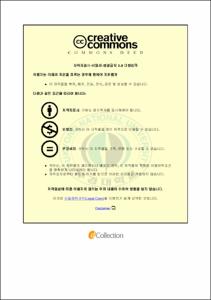아동이 지각한 부모의 양육태도가 아동의 귀인성향과 정서적 부적응행동에 미치는 영향
- Abstract
- The purpose of this study was to examine the effects of children's perceived parental rearing attitudes upon their attribution and emotional maladaptation behaviors. For this, study questions were established as follows:
1. 'Is children's attribution influenced by their perceived parental rearing attitudes?'
1-1. 'Is there any relationship between children's perceived parental rearing attitudes and their attribution?'
1-2. 'What influence do children's perceived parental rearing attitudes have upon their attribution?'
2. 'Are children's emotional maladaptation behaviors influenced by their perceived parental rearing attitudes?'
2-1. 'Is there any relationship between children's perceived parental rearing attitudes and their emotional maladaptation behaviors?'
2-2. 'What influence do children's perceived parental rearing attitudes have upon their emotional maladaptation behaviors?'
Study subjects were 237 fifth and sixth graders (fifth graders = 107 and sixth graders = 130) at three primary schools (each school from A, B and C Districts, classified by Busan Metropolitan City Office of Education) within the jurisdiction of West Office of Education in Busan Metropolitan City.
A questionnaire survey of them was carried out to examine children's perceived parental rearing attitudes, attribution and emotional maladaptation behaviors. Collected data were statistically processed with SAS 9.1 statistical program. Study findings are as follows:
First, as for the correlation between children's perceived parental rearing attitudes and their attribution, there was a weak relation which seemed not to be significant from the aspect of ability factor. However, the correlation between them was significant from the aspects of such attribution factors as effort, the difficulty of assignments and fate.
Second, children's perceived parental rearing attitudes had significant influence upon such attribution factors as effort, the difficulty of assignments and fate, except the factor of ability.
Third, as for the relationship between children's perceived parental rearing attitudes and their emotional maladaptation behaviors, there was a significant negative correlation. This finding seems to present the fact that if parent's rearing attitudes are desirable, children will not present emotional maladaptation behaviors.
Fourth, as for the difference of children's emotional maladaptation behaviors by their perceived parental rearing attitudes, if parent's rearing attitudes were not desirable, children more frequently presented emotional maladaptation behaviors.
In conclusion, study findings show that children's perceived parental rearing attitudes have influence upon such attribution factors as effort, the difficulty of assignments and fate, and if parent's rearing attitudes are not desirable, children more frequently present emotional maladaptation behaviors. Therefore, it is necessary to develop a parental education program from which parents can receive help in their education of children. In addition, it is necessary to develop an attribution training program with which teachers can guide children to develop their attribution, separately from parent's rearing attitudes, in the situation of success and failure of school education.
- Issued Date
- 2010
- Awarded Date
- 2010. 8
- Type
- Dissertation
- Publisher
- 부경대학교
- Department
- 교육대학원 교육심리전공
- Advisor
- 허 균
- Table Of Contents
- Ⅰ. 서론 1
1. 연구의 필요성 1
2. 연구문제 7
3. 용어의 정의 7
Ⅱ. 이론적 배경 10
1. 부모의 양육태도 10
2. 귀인성향 16
3. 정서적 부적응 행동 21
4. 부모의 양육태도와 귀인성향의 관계 26
5. 부모의 양육태도와 정서적 부적응행동의 관계 28
Ⅲ. 연구 방법 31
1. 연구대상 31
2. 연구 도구 및 절차 32
3. 자료 분석 37
Ⅳ. 연구결과 38
1. 부모의 양육태도에 따른 아동의 귀인성향 38
2. 부모의 양육태도에 따른 아동의 정서적 부적응행동 42
Ⅴ. 논의 및 결론 46
1. 논의 46
2. 결론 및 제언 50
< 참고문헌 > 53
< 부 록 > 60
- Degree
- Master
- Files in This Item:
-
-
Download
 아동이 지각한 부모의 양육태도가 아동의 귀인성향과 정서적 부적응행동에 미치는 영향.pdf
기타 데이터 / 711.58 kB / Adobe PDF
아동이 지각한 부모의 양육태도가 아동의 귀인성향과 정서적 부적응행동에 미치는 영향.pdf
기타 데이터 / 711.58 kB / Adobe PDF
-
Items in Repository are protected by copyright, with all rights reserved, unless otherwise indicated.